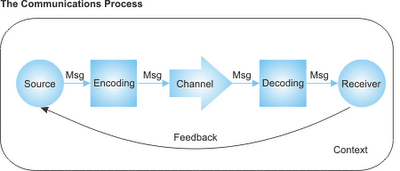- What is the purpose of a summary
- What makes a good summary
- Summary writing tips and tricks
Understanding the Purpose of a Summary
A summary condenses the original text, presenting the main ideas in a concise form. For the Communication Studies exam, this skill is critical for demonstrating comprehension and the ability to distill key information effectively.
Key Components of a Good Summary
Brevity: Summaries should be short, typically 1/3 of the original text.
Clarity: Avoid vague language and clearly present the main points.
Objectivity: Only include information from the source without inserting personal opinions or interpretations.
Accuracy: Ensure that the original meaning of the text is retained.
Steps to Writing an Effective Summary
Step 1: Read and Understand the Text
- Read the passage carefully at least twice.
- Identify the main ideas and supporting details.
- Pay attention to the topic sentences of paragraphs, as they often summarize the key point.
Step 2: Identify Key Information
- Eliminate any unnecessary information like examples, anecdotes, or opinions.
- Focus on the "who, what, where, when, why, and how" of the text.
Step 3: Create a Draft
- Use your own words to rewrite the key ideas.
- Ensure you are preserving the meaning but shortening the content.
- Avoid using direct quotes unless necessary.
Step 4: Revise for Conciseness
- Make sure your summary is brief while covering all essential points.
- Revise for grammatical correctness, coherence, and fluidity.
Step 5: Edit for Accuracy
- Compare your summary to the original text. Ensure all the important ideas are included and no significant points are omitted.
Common Pitfalls in Summary Writing
Too much detail: Including minor points or examples that should be left out.
Paraphrasing too closely: Rewriting the text too closely to the original wording.
Missing the main idea: Focusing on secondary points rather than the primary argument.
Adding personal opinions: The summary should reflect the author’s ideas, not your views.
Practice Tips
Timed Practice: Practice summarizing under exam conditions, where time is limited. Set a timer for 10-15 minutes and work to condense a text within that timeframe.
Vary Text Types: Practice with a variety of texts such as articles, essays, and speeches. This helps in becoming adaptable to different writing styles and content structures.
Peer Review: Swap summaries with classmates for feedback. Others may notice details you missed or highlight where you might be too vague or too detailed.
Free Online Resources for Practice
Summary Writing Exercises:
Purdue Online Writing Lab (OWL): Provides exercises on summarizing and paraphrasing, along with examples.
Khan Academy: Offers exercises that involve reading comprehension and summarization of texts.
Reading Passages for Summary Practice:
CommonLit: A free collection of texts with questions that help in understanding main ideas, perfect for practicing summaries.
Newsela: Provides articles at varying reading levels with options to practice writing summaries.
Summary Writing Worksheets:
Education.com: Offers free worksheets and printables for practicing summary writing skills.
Conclusion
By incorporating these steps and using the free resources, you can improve your summary writing skills and be better prepared for any exam, especially a Communication Studies exam.
You may also want to read:





